Speakers
Description
The next generation magnetic spectrometer in space, AMS-100, is designed with a geometrical acceptance of 100~m²sr for a ten year operation at Sun-Earth Lagrange Point 2.
The purpose of AMS-100 is to improve the sensitivity for the observation of new phenomena in cosmic rays by at least a factor of 1000.
The AMS-100 detector consists of a high temperature superconducting solenoid, an electromagnetic calorimeter, a tracking system made out of silicon and scintillating fiber modules, a time of flight system based on
plastic scintillators readout by siliconphotomultipliers.
We will present the AMS-100 detector design and its astrophysics potential.
A test coil with a length of 15 cm and a diameter of 12 cm made out of
8 layers HTS tape will be shown. Measurements of the magnetic field, the
critical current and the structural behaviour will be discussed.
Time resolution measurements with a ToF-prototype in the temperature range of +30°C to -40°C will be presented.
The first produced 12-layer fiber mat made out of 125µm thick scintillating fibers and the quality control measurements will be shown.
| Primary experiment | AMS-100 |
|---|




